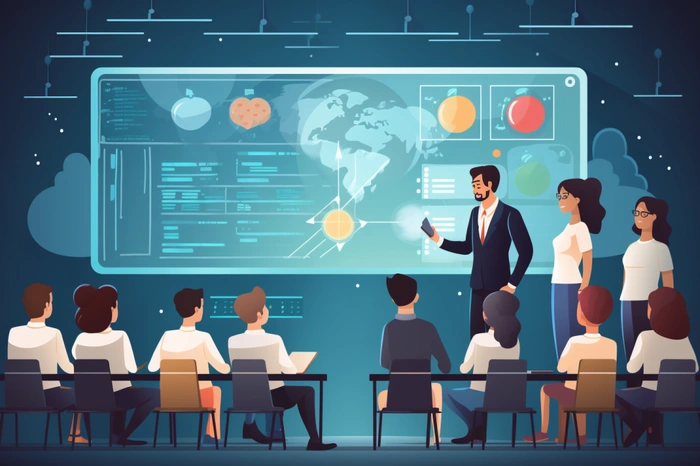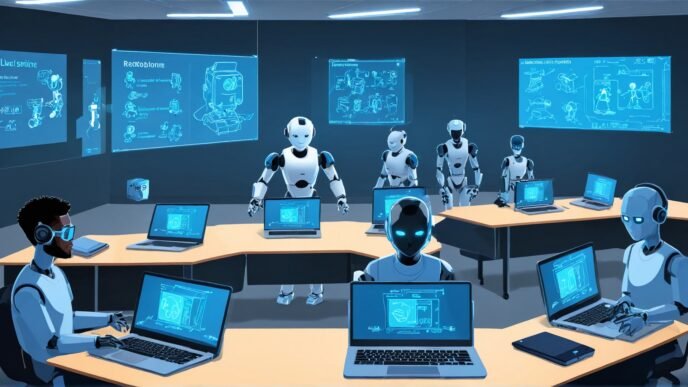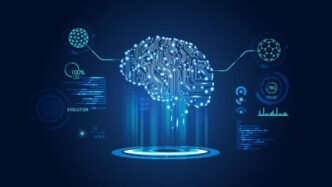Bringing AI to Education: A Double-Edged Sword?
Artificial Intelligence is rapidly transforming various sectors, and education is no exception. OpenAI has unveiled a free online course aimed at helping K-12 teachers integrate ChatGPT into their classrooms. While the initiative promises innovative teaching methods, it has ignited a debate among educators about the ethical implications and potential risks.
OpenAI’s Vision for Education
Revolutionizing Lesson Plans
OpenAI envisions teachers using its AI-powered tools to create lesson plans and interactive tutorials. The course, developed in collaboration with Common Sense Media, is a one-hour, nine-module program covering the basics of AI and its pedagogical applications.
Rapid Adoption in Schools
According to OpenAI, the course has already been deployed in “dozens” of schools, including:
• Agua Fria School District in Arizona
• San Bernardino School District in California
• Challenger Schools, a charter school system
An internal survey revealed that 98% of participants found new ideas or strategies applicable to their work.
Educators Raise Concerns
Ethical Implications
Lance Warwick, a sports lecturer at the University of Illinois Urbana-Champaign, worries that such resources might normalize AI use among educators who are unaware of the technology’s ethical challenges.
“I’m not sure these are compatible with the use cases,” Warwick noted, pointing out contradictions in the course modules on privacy and safety.
Data Privacy and Ownership
Sin á Tres Souhaits, a visual artist and educator at The University of Arizona, appreciates AI tools for creating supplementary materials but is concerned about content control.
• Questions how OpenAI might exercise control over teacher-created content
• Uncertainty about how OpenAI will use, package, or sell generated data
The Fine Print: OpenAI’s Terms of Service
OpenAI states that it doesn’t sell user data and that users own the outputs they generate. However, some educators are skeptical.
“It’s unclear to me how OpenAI will use, package, or sell whatever is generated by their models,” said Tres Souhaits.
Calls for Regulation
In late 2022, UNESCO urged governments to regulate AI in education, advocating for:
• Age limits for users
• Guardrails on data protection and user privacy
Despite these recommendations, little progress has been made on AI policy, leaving educators in a gray area.
Different Perspectives
A Cautious Optimism
Josh Prieur, a former classroom teacher and now product director at Prodigy Education, views OpenAI’s outreach more positively.
• Believes in the clear upsides if AI is adopted thoughtfully
• Acknowledges risks but emphasizes education as key to overcoming fears
“Education is often key to overcoming fears around the adoption of new technology in schools,” Prieur stated.
Potential Benefits
• Efficient Lesson Planning: AI can automate routine tasks.
• Personalized Learning: Tailoring education to individual student needs.
• Resource Accessibility: Providing tools that might otherwise be unavailable.
OpenAI’s Aggressive Push into Education
OpenAI sees education as a key growth area. By offering resources like the ChatGPT course, the company aims to position itself at the forefront of educational technology.
• Aligns with their partnership with Common Sense Media
• Seeks to establish ChatGPT as a staple in educational settings
The Debate Continues
The introduction of AI tools in education is a complex issue. On one hand, there’s potential for innovation and improved efficiency. On the other, concerns about ethics, data privacy, and corporate control persist.
Conclusion
OpenAI’s new course for teachers underscores the growing intersection between AI and education. While the technology offers exciting possibilities, it’s essential to address the valid concerns raised by educators. As AI continues to evolve, a collaborative approach involving teachers, policymakers, and tech companies is crucial to ensure that educational advancements benefit everyone.













